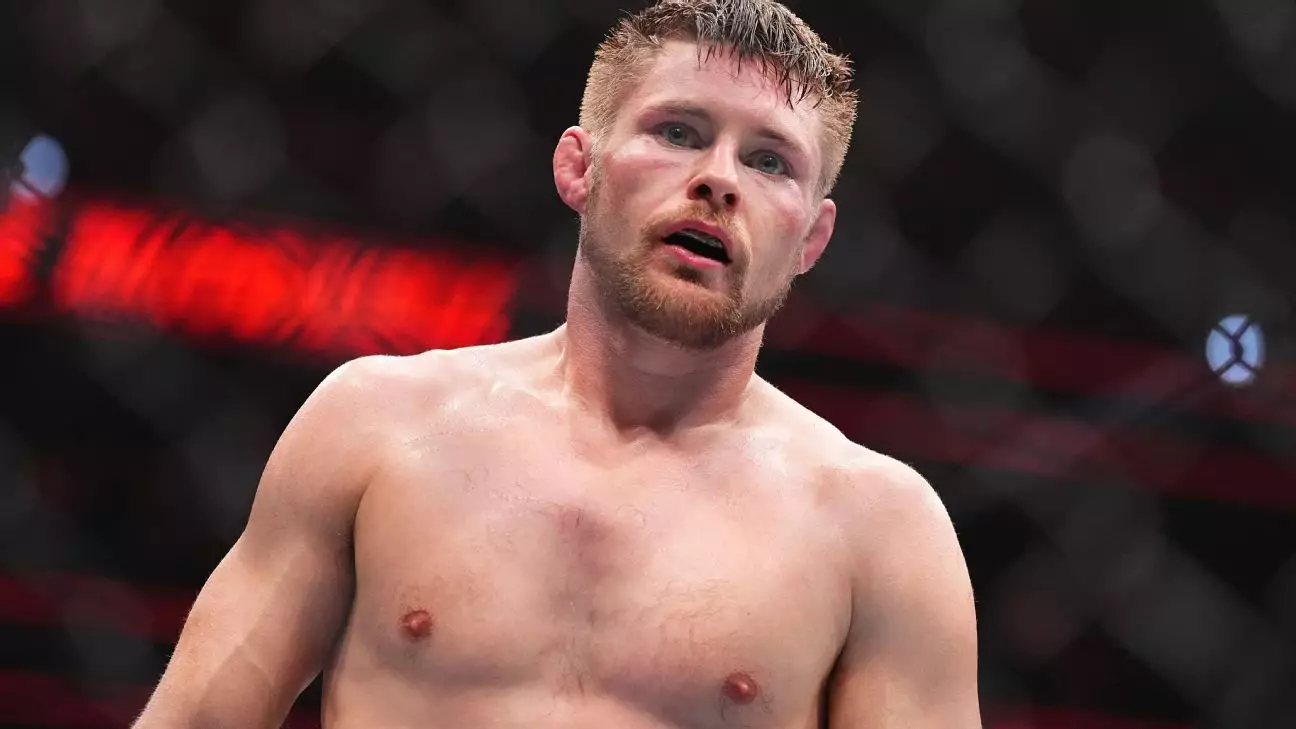In a recent episode of his podcast, “ArkanSanity,” UFC featherweight Bryce Mitchell made comments that have sparked outrage across various platforms. In a startling display of insensitivity, he invoked the name of Adolf Hitler, labeling him a “good guy” and suggesting that his actions were acceptable in the context of fighting for his country. This absurd and deeply troubling assertion is emblematic of a wider societal issue—where extremist views can gain traction in the age of social media.
Mitchell’s decision to make such remarks about one of history’s most infamous figures not only reflects a gravely misguided perspective but also raises significant concerns about the influence that athletes wield. As public figures, fighters like Mitchell have a responsibility to acknowledge the weight of their words, which, due to their reach, can perpetuate harmful ideologies. The fact that he denied the Holocaust, a well-documented atrocity that led to the deaths of millions, is not only a personal failing but a fundamental misunderstanding of history.
UFC President Dana White was quick to respond to the situation, branding Mitchell’s comments as “beyond disgusting.” His condemnation was direct and unambiguous, emphasizing that relating to Hitler in any positive light is unacceptable. White’s assertion that Hitler was responsible for one of the most horrific genocides demonstrates a commitment to historical truth and moral integrity. His comments highlight the dangers of misinformation and the social responsibility that comes with having a platform.
However, while White’s denunciation was clear, his decision not to impose any disciplinary action on Mitchell raises questions regarding the UFC’s commitment to addressing such behavior within its ranks. White invoked the principle of free speech, implying that Mitchell should not face repercussions for his statements. This defense of free expression, while important, feels misplaced given the nature of Mitchell’s remarks, which warrant a more definitive stand against hate speech and extremism.
Mitchell’s comments serve as a case study of how misinformation can permeate society through celebrity voices. In an era where social media amplifies all voices—both wise and ignorant—the prevalence of such views is particularly concerning, especially when they are expressed by popular figures. The fact that Mitchell’s podcast, though presumably intended for entertainment, validates and disseminates dangerous ideologies is a reminder of the need for vigilance against hate speech.
Thus, the incident calls for a reassessment not just of the UFC’s policies but of the wider culture within sports that allows for such rhetoric to thrive unchecked. The balance between preserving free speech and protecting the integrity of fundamental human values is delicate, but necessary. Fans and athletes alike must realize the power of their words and the impact they may hold, advocating for a culture that values respect over rhetoric.
In closing, the UFC finds itself at a crossroads in the wake of Bryce Mitchell’s incendiary rhetoric. While Dana White’s timely condemnation emphasizes the need for accountability, the lack of disciplinary measures is troubling. Moving forward, both fighters and organizations must engage in earnest discussions about the influence of language and the responsibilities that come with it, championing the principles of respect and understanding above all.


Leave a Reply